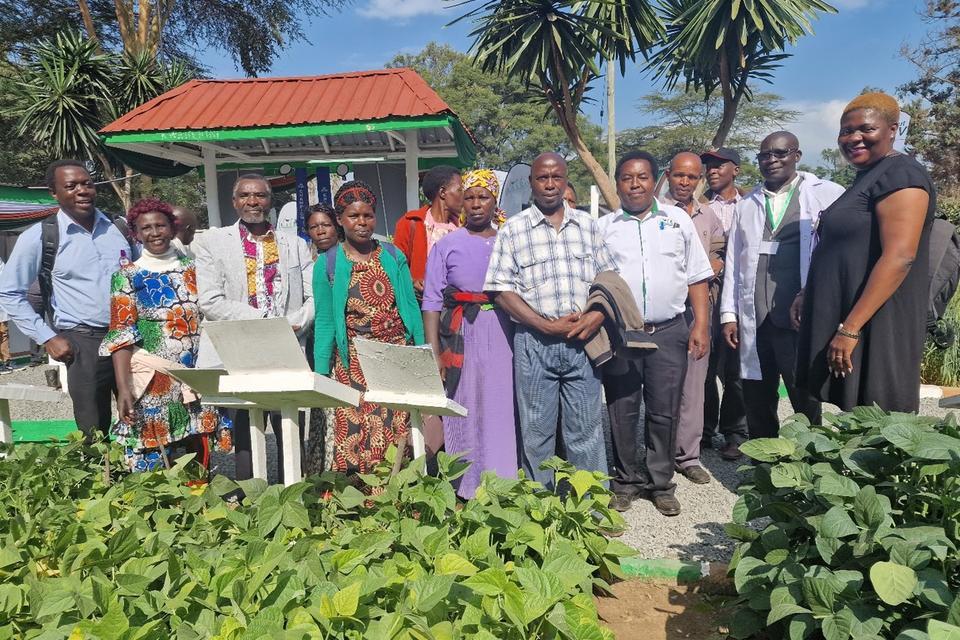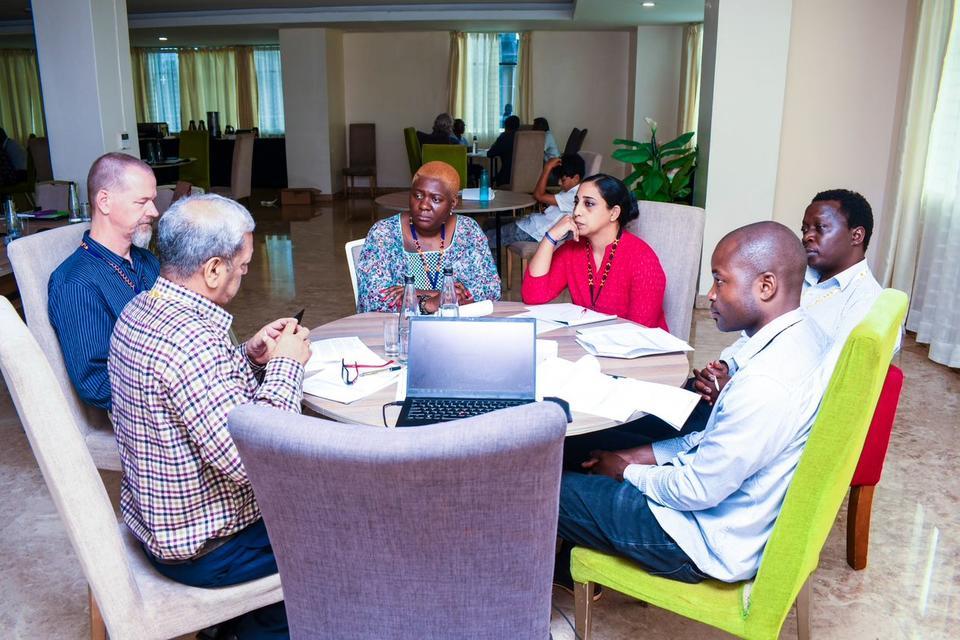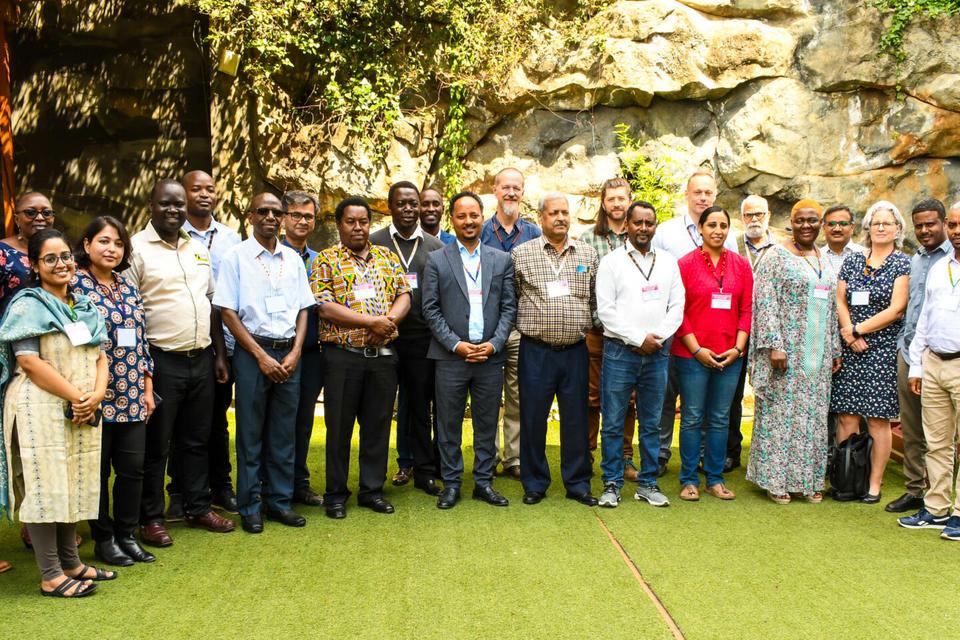From the Field Getting ahead of the curve on gender: asking different questions
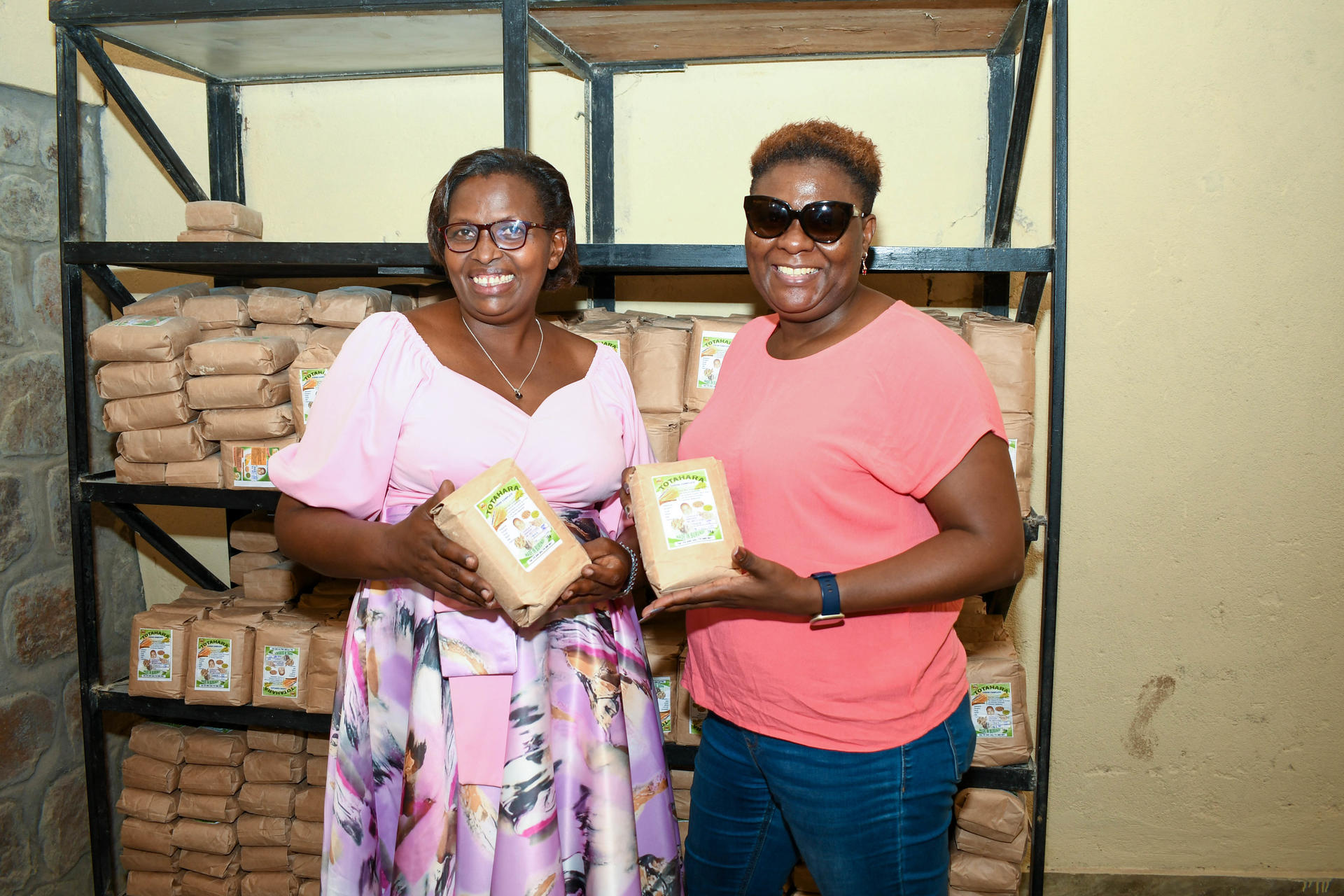
For many years, researchers have pointed out that there are gender disparities and gaps in agriculture. It has been shown that, for example, men have better access to information, resources like land, and technology, than women do.
By: Georgina Smith
Closing the gender gap in agriculture by empowering women farmers has the potential to raise the incomes of 58 million people, and the resilience of an additional 235 million.
Dr. Eileen Nchanji has studied these disparities for years. She has different questions in mind.
“Instead of reflecting on the existing gender gap, what solutions can we start working on that can reduce that gap?” she notes. “What about focusing on the things we can do, that can help women adapt more quickly to the impacts of climate change?” asks Dr. Nchanji.
Speaking at the Africa Green Revolution Forum (AGRF 2023) in Tanzania, where she has been invited by Gates Ag One – a subsidiary of the Bill & Melinda Gates Foundation, highlighting how breeders can harness crop improvements to benefit women. Such gender-responsive programs in crop improvement, as they are known, are already seeing rippling impacts across sub-Saharan Africa.
“We have been working with breeders to pull out information that captures what is happening to men and women farmers as a result of climate change. But also, within the wider context of the value chain, looking at traits that would reduce drudgery for women, or increase employment for women or men, or provide less expensive solutions.
How the private sector can scale up success
Such information is well understood by the private sector, which often has a good understanding of their target audience. “Businesses know where the demand is, they know their products, where to sell them and what price to ask,” she explained.
“But they often need to be better connected to national agricultural research institutes, they can go to breeders and ask for specific traits, demanded by their clients, like fast cooking, taste, colour or increased nutrition like iron and zinc. They also need to be connected with farmers that can produce the necessary quality products. That’s where we can help.”
One such example is from Burundi. There, Dr. Nchanji went to meet the enterprising woman, Christella Ndayishimiye, CEO of Totahara Limited, a woman-owned bean-based porridge processor in Bujumbura. Her composite flour made out of beans is rich in iron and zinc, supporting smallholder farmers to improve their income, while at the same time, helping to tackle malnutrition.
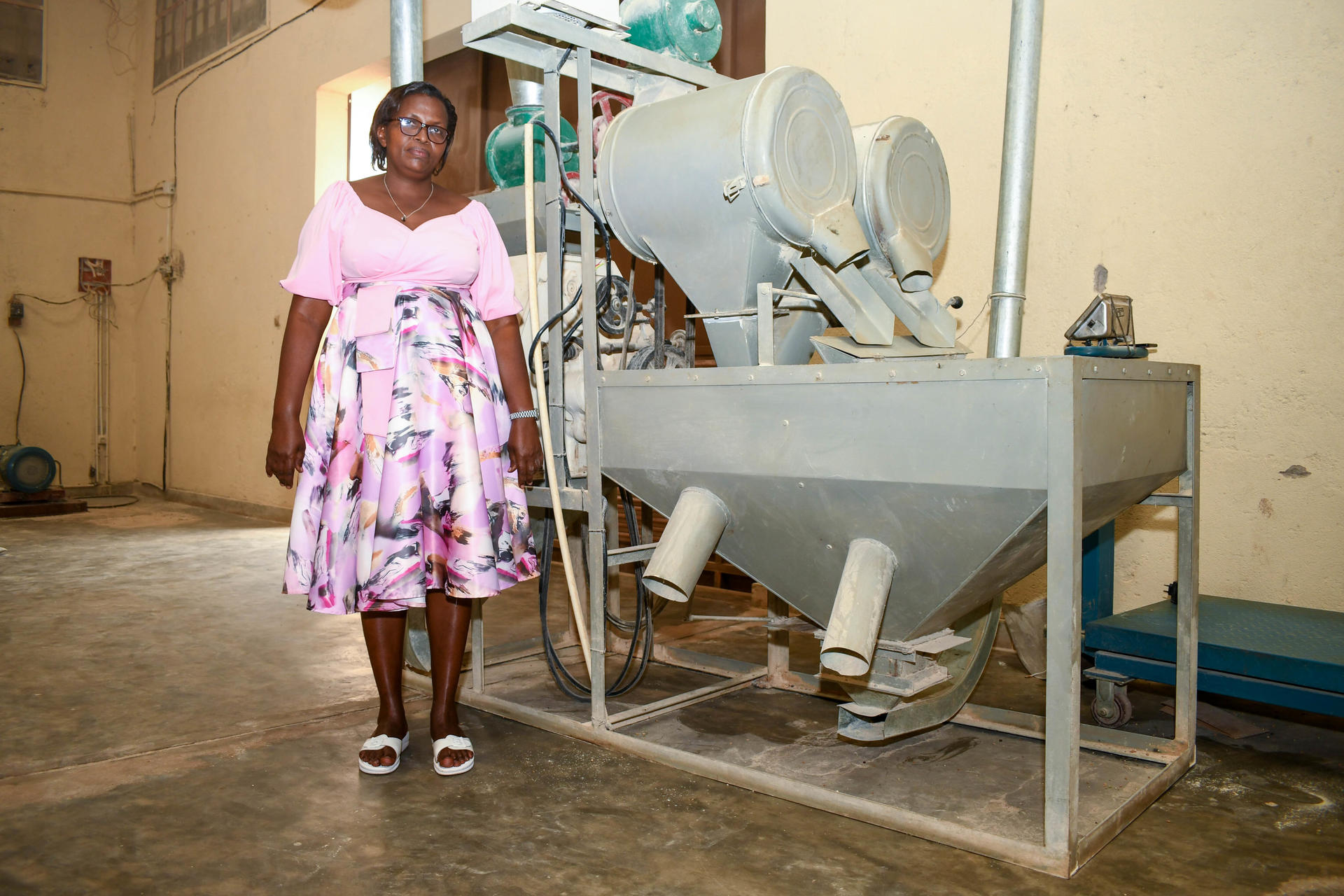
Christella Ndayishimiye, CEO of Totahara Limited, a woman-owned bean-based porridge processor in Bujumbura, Burundi. ( Credits: Owen Kimani)
Processed Bean Products such as precooked beans and bean flour are the most common and most outstanding innovations in the bean world, commonly used to boost protein levels in various recipes.
Bean flour provides essential qualities that include water retention, gelation, adhesion and emulsification, and can provide plant protein in baked products to reduce cholesterol, or used in gluten-free bakeries. Bean flours are now produced and consumed across sub-Saharan Africa through the Pan Africa Bean Research Alliance (PABRA) scaling out initiatives.
Today, Christella packages and sells the flour throughout Burundi and beyond to the Democratic Republic of Congo and Rwanda. Her business model includes young women entrepreneurs in packaging and sealing products for supermarket shelves, as well as working with smallholder farmers who are women to supply the beans.
Christella Ndayishimiye, CEO of Totahara Limited in Bujumbura, Burundi, discusses her business idea and success:
By working together with World Vision, creches have been set up, where women can leave their children as they go out to farm. The women take turns to stay with the children of all the other women, and supply a good meal of nutritious porridge provided by Totahara, while teaching the children to read and write.
Impacting gender equality in unforeseen ways
“In addition to seeing Totahara’s products on the supermarket shelves, the impact of her product was scaled out to the rural areas, among communities that really need the extra support,” Dr. Nchanji notes. “Now, Christella’s bean-based products are being made in factories in Madagascar, where malnutrition is very high. Such businesses have the ability, by tailoring products in demand, to scale up impactful results,” she said.
Dr. Nchanji’s research has also shown that the use of improved certified seeds in Burundi, through ISABU and other partners, found that men and young farmers were less inclined to use certified seeds compared to women. This has promoted women’s involvement in bean production and contributed to joint decision-making within households.
Such examples show that, alongside addressing gender disparities in land access, digital technology, land ownership or support for women’s literacy via higher education and agricultural extension, equipping women with solutions such as improved crops, can be the seed of greater change.
Dr. Nchanji’s underscores the importance of promoting membership in agricultural groups and improving social capital to enhance access to information on bean production and climate-smart technologies. Additionally, policy interventions that encourage the use of certified seeds, which have been shown to increase women’s participation in bean production and joint decision-making, should be promoted.
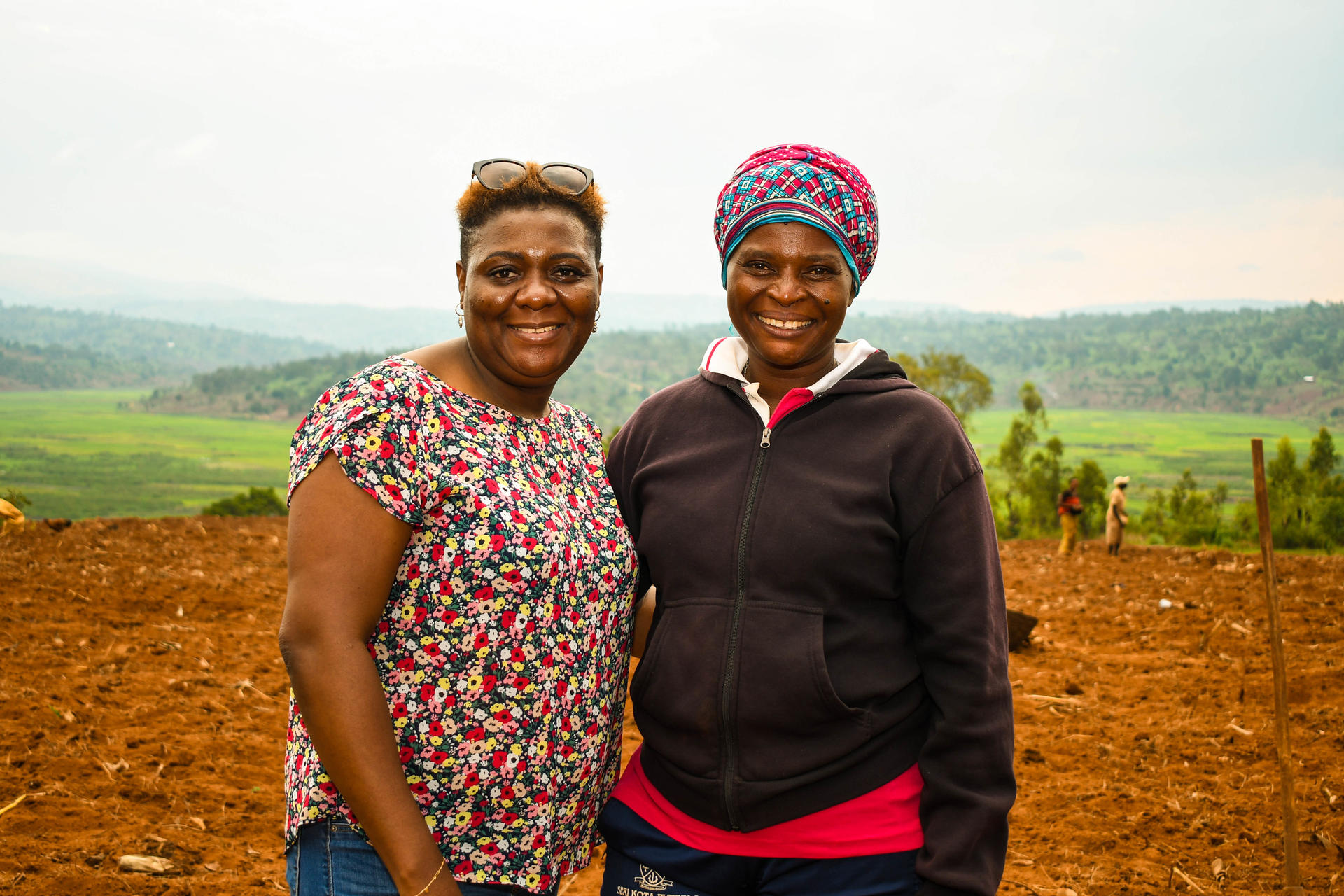
Dr. Nchanji with a farmer in Burundi. (Credits: Owen Kimani)
Meet Eileen
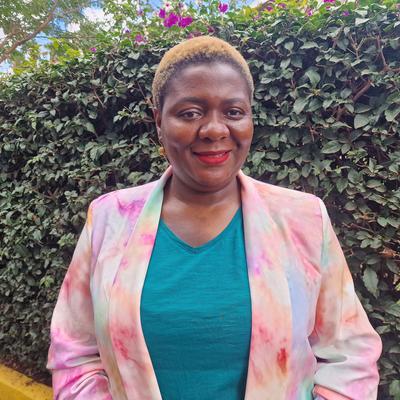
Nchanji Eileen Bogweh
Gender and Social Inclusion ExpertDeveloping tools beyond yield increase
Plant breeders have not only improved crop yields with knock-on impacts on income, they also have lowered the need for chemicals and pesticides through development of pest and disease tolerant varieties, thus reducing cost of production. Gender-sensitive breeding is therefore critical to offer a clear focus on addressing gender gaps in agriculture, by considering different traits preferred by both men and women.
The CGIAR gender and breeding initiative has developed an important tool to guide breeders in identifying the gender gaps and preferences of customers to develop and prioritize new products that address persistent gender gaps in crop production.
The tool; G+ product and customer profile, recognizes changes in modern agriculture towards more demand-driven business models for social inclusivity. The step-by-step process considers gender differences in knowledge to make it easier to develop the right product for the right customers, ensuring that both men and women can adapt more easily to changing weather and circumstances in future.

